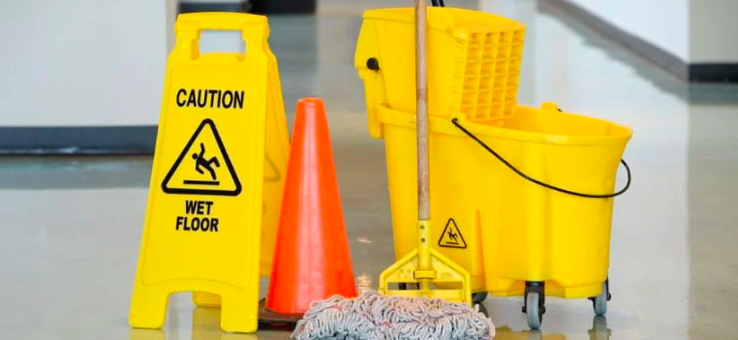Industrial cleaning is an essential aspect of maintaining a safe, functional, and efficient workspace. Whether it’s a factory, warehouse, or production facility, a clean environment not only improves productivity but also ensures the health and safety of workers, protects equipment, and complies with regulations. Below, we will explore the top essentials for industrial cleaning services and why they are critical for every facility.
1. Proper Equipment for Heavy Duty Cleaning
One of the first essentials for industrial cleaning services is the right equipment. Unlike residential cleaning, industrial environments require powerful tools that can handle large areas and heavy-duty grime. Essential equipment includes:
- Industrial Vacuums: High-power vacuums are indispensable for removing dust, dirt, and debris from large areas, especially in factories or warehouses where particles accumulate quickly. These vacuums are designed to handle tough materials like metal shavings, wood chips, or hazardous materials safely.
- Pressure Washers: For surfaces where dirt and grime have built up, using a high-pressure waterblast nozzle with a pressure washer is crucial. This powerful tool effectively cleans exterior walls, floors, machinery, and other areas that require a thorough, deep cleaning.
- Scrubbers and Floor Machines: Floor cleaning is one of the most challenging aspects of industrial cleaning. Scrubbers and automatic floor machines are essential for cleaning large expanses of concrete, tile, or other hard floors. These machines ensure a spotless finish while reducing the time and effort required.
- Specialized Brushes and Tools: Industrial-grade brushes, mops, and squeegees designed to handle specific surfaces and tough stains are crucial for maintaining cleanliness in all areas of an industrial facility.
2. Safety Protocols and Cleaning Chemicals
Industrial cleaning often involves hazardous materials, which makes safety protocols and appropriate cleaning chemicals an absolute must. Here’s what every facility needs:
- Non-Toxic and Industrial-Grade Chemicals: Industrial cleaners should be specifically formulated to remove heavy contaminants like grease, oil, rust, and chemical residues. These cleaners should be non-toxic, biodegradable, and safe for both workers and the environment.
- Personal Protective Equipment (PPE): Workers involved in industrial cleaning must wear the proper PPE, including gloves, goggles, respirators, and aprons, to protect against harsh chemicals and potential accidents. Ensuring that employees are properly protected while cleaning is critical to maintaining a safe workspace.
- Proper Disposal of Waste: Facilities must adhere to regulations regarding the disposal of hazardous waste, such as used chemicals or oil. Cleaning services should be trained to handle, store, and dispose of such waste in compliance with local laws.
3. Cleaning and Maintenance of Industrial Equipment
In any industrial environment, the maintenance of equipment is essential to prevent breakdowns and ensure the smooth functioning of operations. A crucial part of industrial cleaning services is cleaning the equipment itself.
- Machine Cleaning: Industrial machines and production lines can accumulate grease, oil, and dirt over time. Routine cleaning prevents malfunctions and extends the lifespan of expensive machinery. High-pressure washing systems, industrial wipes, and degreasers are effective tools to clean these surfaces thoroughly.
- Air Duct and Ventilation Cleaning: Clean air ducts and ventilation systems are vital for maintaining air quality and preventing dust buildup in sensitive areas. Industrial cleaning services should regularly inspect and clean these systems to ensure proper airflow and prevent hazardous conditions like fire risks from combustible dust.
4. Regulatory Compliance and Documentation
Industrial facilities are subject to various local, state, and federal regulations regarding cleanliness and safety. An essential component of any industrial cleaning service is ensuring compliance with these regulations.
- OSHA Compliance: The Occupational Safety and Health Administration (OSHA) sets specific guidelines for cleanliness in industrial workplaces, particularly concerning hazardous materials and waste disposal. Industrial cleaning services should be well-versed in these regulations and implement practices that ensure compliance.
- Environmental Regulations: Facilities must also adhere to environmental standards when disposing of cleaning chemicals or waste. Using eco-friendly cleaning products and adopting sustainable cleaning practices are becoming increasingly important in the industrial sector.
- Documentation and Record Keeping: Facilities should keep detailed records of cleaning schedules, equipment inspections, chemical usage, and compliance efforts. Documentation ensures accountability and provides a trail in case of audits or inspections.
5. Regular Cleaning Schedules and Routine Inspections
One of the most critical aspects of industrial cleaning is consistency. A well-maintained cleaning schedule not only keeps the facility hygienic but also prevents the buildup of hazardous materials. Regular inspections and routine cleaning should be part of an ongoing maintenance program.
- Daily Cleaning Tasks: Certain tasks, such as sweeping floors, wiping down surfaces, and emptying trash bins, should be done daily to prevent clutter and maintain cleanliness.
- Weekly or Monthly Deep Cleaning: Deeper cleaning tasks, such as scrubbing floors, sanitizing machinery, and cleaning vents, should be scheduled on a weekly or monthly basis. This ensures that every area receives attention and minimizes the risk of contamination or deterioration.
- Seasonal or Yearly Deep Cleaning: Some areas may require more intensive cleaning on an annual basis, especially those exposed to the elements, like exterior windows or roofs. Scheduling seasonal or yearly deep cleaning allows a facility to address harder-to-reach areas and maintain equipment longevity.
6. Expertise and Experience of Cleaning Staff
Lastly, the expertise and experience of the cleaning staff play a pivotal role in the success of any industrial cleaning operation. Trained cleaning professionals understand the intricacies of industrial environments and are equipped to handle challenging tasks efficiently.
- Training and Certification: Staff should be regularly trained in the proper cleaning techniques, safety protocols, and the use of industrial-grade equipment and chemicals. Certification programs can ensure that workers are knowledgeable and adhere to industry standards.
- Specialized Cleaning Services: Depending on the type of facility, industrial cleaning services may require specialized training. For example, food production facilities need workers who understand the importance of sanitation to prevent contamination, while chemical plants need expertise in dealing with hazardous materials.
In Conclusion
Industrial cleaning services are an essential part of maintaining a clean, safe, and efficient facility. By investing in the proper equipment, safety protocols, and a well-trained cleaning team, businesses can ensure a productive environment that meets all regulatory standards. Whether it’s routine cleaning, equipment maintenance, or ensuring safety, these essential aspects of industrial cleaning are crucial for the smooth operation of any facility.










